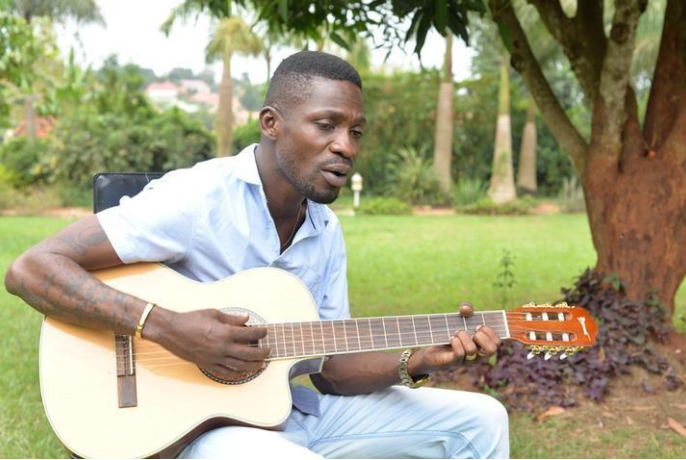Top Ugandan musician-turned-legislator says he wants to use his star power to spark “political change” in a country where President Yoweri Museveni has ruled for 31 years and parliament plans to introduce a bill to allow him to run again.
Most popular musicians in the prospective oil producer have either steered clear of politics or openly lent their support to the ruling party, which pays them to sing pro-Museveni ballads or perform at rallies.
That often irritates Uganda’s opposition, which has long accused them of being silent about government corruption and crackdowns on critics. But now that’s changing.
Robert Kyagulanyi Ssentamu, 35, who goes by the stage name of Bobi Wine, has become a magnetic presence on Uganda’s political scene after a surprise entry into politics with a landslide win as an independent candidate in a parliamentary by-election at the end of June.
His anti-government stance, peppered in his lyrics, combined with an electric connection with the youth, could be a serious threat to Museveni’s grip on power, political analysts said.
“We want to cause political change,” Ssentamu told Reuters in an interview. “It’s long overdue.”
In a show of irritation with the singer’s support, Museveni complained to local media that he had been heckled while campaigning for the ruling party candidate in the by-election and that this was “unacceptable”.
“The police should not tolerate that,” he said.
Museveni, 72, is currently ineligible to seek another term because Uganda’s constitution bars anyone above 75 years from being a presidential candidate.
STAR POWER
But there are plans under way to change the constitution so he can stand again in 2021. There has been growing public opposition since senior officials announced plans to introduce a bill in parliament seeking to remove the age cap from the constitution.
In 2005, another constitutional hurdle limiting a Ugandan president to two, five-year terms was removed, allowing Museveni to extend his rule.
Corruption, usually by loyalist officials, is rampant and rarely punished in Uganda and presidential polls lack transparency and credibility, according to some independent monitors. Government critics are sometimes jailed.
Such complaints inspired other famous musicians to wade into politics in Africa where a love of music gives musicians great reach.
Singer Youssou N’Dour ran unsuccessfully for the Senegalese presidency in 2012. Taunting lyrics of Nigerian Fela Kuti, Africa’s Bob Marley, so enraged Nigeria’s military government in the 1970’s that they burned his house down and threw his mother out a window.

Ssentamu said he entered politics to create “mental awakening” so young voters “know how powerful they are”.
Ssentamu’s music career took off in the early 2000s, and his songs, whose genre he describes as “edutainment,” often spotlight urban poverty.
A diminutive figure who has now traded in his frizzy curly hair and denims for a trim, besuited parliamentary look, Ssentamu calls himself “Ghetto President”.
The title plays on his star power and charity work among the urban poor, especially in a slum neighbourhood in the capital Kampala where he has his studios, Firebase Entertainment.
His constant criticism of government in his songs has long set him apart from his peers in an industry that government is always eager to keep close.
In October 2015, about three months to the last presidential election, top musicians received public censure after images of them attending a dinner fete with Museveni at a luxury hotel, most of them donning clothing the colour of the ruling party.
Ssentamu was a notable absence.
“GHETTO YOUTH”
Instead, he won wide acclaim when he visited Uganda’s popular opposition figure, Kizza Besigye, and played a guitar at his home in the capital Kampala where Besigye was under house arrest in the weeks after the last election.
“I see decisions being made by almost one person. It limits our talents,” Ssentamu said, referring to Museveni.
He would exploit his mass appeal to “incite reasoning, to give confidence to … those ghetto youth”.
If he wins the next election, Museveni will potentially be in power for 40 years, and there’s widespread suspicion amongst opponents that he wants to hand over power to his son, Muhoozi Kainerugaba, a major general in the military.
Kainerugaba is already a presidential adviser and formerly headed a powerful elite military unit.
“Let our people be empowered with the ability to resist,” Ssentamu said, adding that he feared scrapping the age cap would spur instability. A shot at the presidency was not yet a consideration, he said, even as a line in “Uganda”, one of his latest songs, gives away a hint: “We are the leaders of the future and the future is today.”
Reuters





